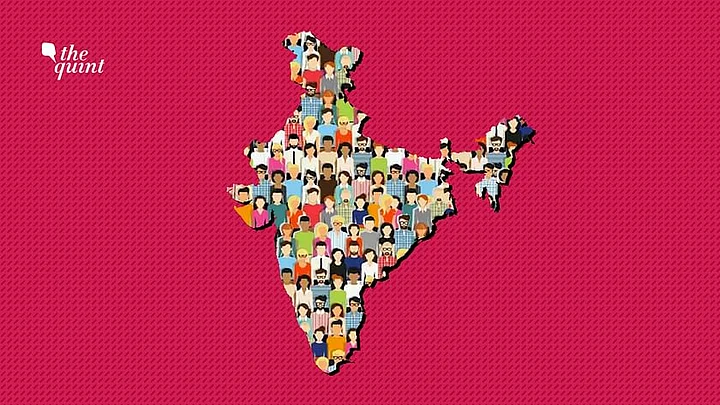Countrywide protest against Citizenship Amendment Act (CAA) and National Register of Citizens (NRC) indicate that Indian democracy is losing a healthy balance between the state, the individuals, and the rights.
On December 19–the day when the British hanged freedom fighter Ashfaqullah Khan in 1927 for his role in the Kakori arms robbery – I finished my political science examination and began my way out of the University of Lucknow campus. At the Gate No. 1, scores of youths, including students, some damaging cars and motorbikes, were protesting against the CAA and the NRC. Policemen were also deployed around the campus and at many places in the city of Lucknow.
At the crux of the face-off between the cops and citizens is what constitutes citizenship. The protests reveal that people of India and the Indian state—at least the present government—have developed contradictory understandings of citizenship.
Citizens and Conundrums of Citizenship
To damage private or public property is not right because the meaning of citizenship is lost immediately when one citizen acts against our common interests and against the interests of other citizens. A citizen is one who stands by other citizens, not always with the government. Because, we the citizens of India form the government and give it to ourselves so that it works for the welfare of all citizens, not only for a specific community.
The protesters are criticizing CAA and NRC because they have a right to judge the government policies. For our generation of students, especially girls, we are not here just to study history and political science, but we are here to create history and reshape our society for the benefit of all citizens and all communities. CAA and NRC ki wajah se main apni hi family mein aaj membership maangne keliye majboor ho rahi hoon (The CAA and NRC force me to apply for membership in my own family).
Whose Freedom is More Important?
In a democracy, the freedom of the individual is more important than the freedom of the state because the state is from the individual, the individual is not from the state.
If the freedom and autonomy of the state is greater, then the basic rights and liberties of citizens are crushed.
This is what happened in Jammu & Kashmir where the state used limitless power over the citizens, thereby suppressing people's rights and access to internet, telephone and schools, and to engage in trade and business or to walk and assemble peacefully.
As a student of political science, I am taught that the state derives its existence from four components: sovereignty, population, territory and government. In the case of Jammu & Kashmir, the Indian state militated against its two components – territory and population.
In the case of CAA and NRC, the Indian state is fighting its own component – the population, in other words the citizens.
When the state exerts excessive power over the citizen, it creates fear in the minds of citizens. Such fear suppresses the intellectual development of citizens. In such a situation, societies, communities and countries cannot be expected to prosper. It is extremely distressing that in a democratic country like India, policemen entered a totally peaceful place like the library of Jamia Millia Islamia in New Delhi. Today, police – as the arm of the state – and the protesters because of whom the state exists, are facing each other.
State, Individual and Rights
Such trends in police behaviour have a long-term impact on the nature of the Indian state. We must not forget that police and army did not take part in our freedom struggle. They were serving the British colonial rulers and today once again by attacking students are serving a different set of rulers. This will lead to a dystopian world where the individual does not exist as a conscious citizen , a warning the English writer George Orwell gave in his novel, 1984.
Harold Laski, the English political theorist, argued that the state, individual, and rights are inseparable.
But through CAA and NRC the government is creating a fracture between these three elements of the Indian republic. The Preamble of the Constitution of India was written in order to nourish and protect Laski's all three elements: state, individual and rights. The Preamble – which defines India as a sovereign, socialist, secular and democratic republic – also expresses our centuries-long ethos of unity in diversity. By bringing CAA and NRC, the state has struck at the Preamble as well as at the Indian unity.
In his speech at the World Parliament of Religions in Chicago in 1893, Swami Vivekananda defined the best meaning of Indian citizenship, observing: "I am proud to belong to a nation which has sheltered the persecuted and the refugees of all religions and all nations of the earth." This comprehensive idea of India's greatness was also articulated by the poet Muhammad Iqbal when he wrote in Tarana-e-Hindi (The Anthem of India):
Yunan-o-Misr-o-Roma sab mit gaye jahan se,
Ab tak magar hai baqi naam-o-nishan hamara;
Kuchh baat hai ke hasti mit-ti nahin hamari;
Sadiyon raha hai dushman daur-e-zaman hamara.
(The Greeks, Egyptians and Romans have all perished, but we are still here. There must be something unique that we still exist despite the whole world against us.)
The CAA and NRC damage the very conception of citizenship in the minds of India's people. The violent protesters and the state are attacking the very idea of good citizenship which requires us to live in peace, harmony and equality with each other. Whenever societies lose their balance, protests are the natural outcomes. But such protests must remain peaceful so that interests of every citizen are protected by every citizen.
(Mantasha Ansari is a student of BA Hons (Political Science) at the University of Lucknow. This is a Readers’ Blog and the views expressed in this article are that of the writer’s own. The Quint neither endorses nor is responsible for the same.)
